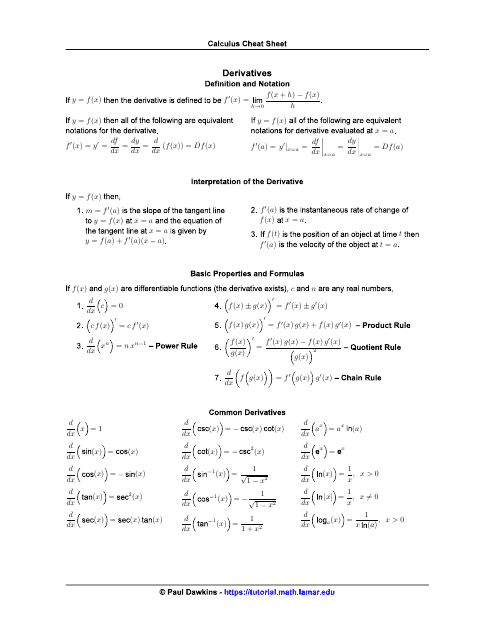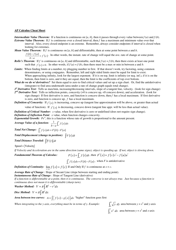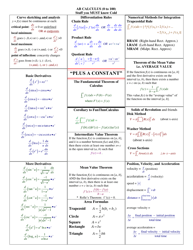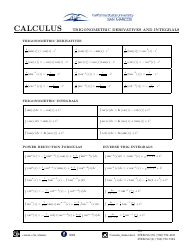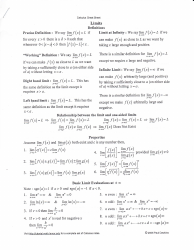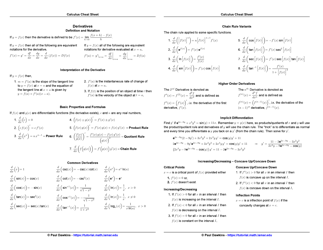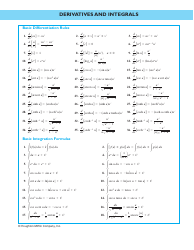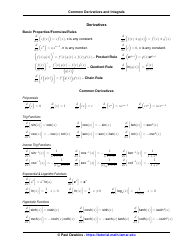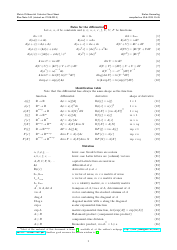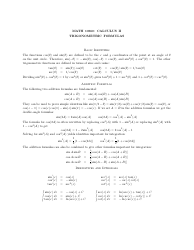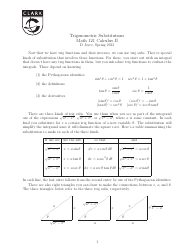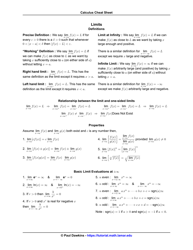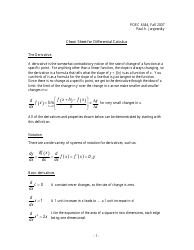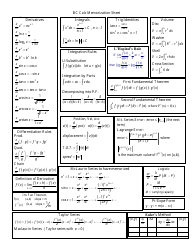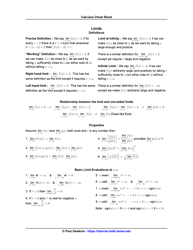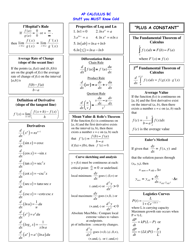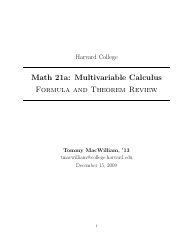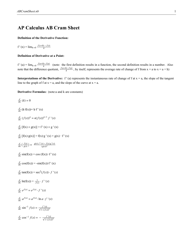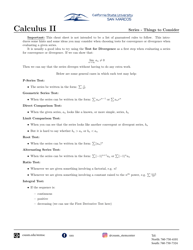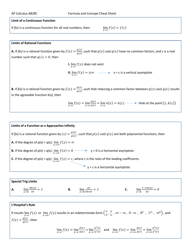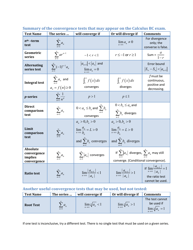Calculus Cheat Sheet - Derivatives
A Calculus Cheat Sheet - Derivatives is a quick reference guide that provides formulas and techniques for finding derivatives of functions in Calculus. It can be used by students or professionals as a handy tool to help them solve derivative calculations more easily.
FAQ
Q: What is a derivative?
A: A derivative measures how a quantity changes with respect to its input variable.
Q: How do you find the derivative of a function?
A: To find the derivative of a function, you can use various rules and formulas such as the power rule, product rule, quotient rule, and chain rule.
Q: What is the power rule?
A: The power rule states that if f(x) = x^n, then f'(x) = nx^(n-1).
Q: What is the product rule?
A: The product rule states that if f(x) = g(x) * h(x), then f'(x) = g'(x) * h(x) + g(x) * h'(x).
Q: What is the quotient rule?
A: The quotient rule states that if f(x) = g(x) / h(x), then f'(x) = (g'(x) * h(x) - g(x) * h'(x)) / h(x)^2.
Q: What is the chain rule?
A: The chain rule allows us to find the derivative of a composition of functions. If f(g(x)), then f'(g(x)) * g'(x).
Q: What is the derivative of a constant?
A: The derivative of a constant is always zero.
Q: What is the derivative of a sum or difference of functions?
A: The derivative of a sum or difference of functions is the sum or difference of their derivatives.
Q: What is the derivative of a constant multiplied by a function?
A: The derivative of a constant multiplied by a function is the constant multiplied by the derivative of the function.
Q: What is the derivative of sin(x)?
A: The derivative of sin(x) is cos(x).
Q: What is the derivative of cos(x)?
A: The derivative of cos(x) is -sin(x).
Q: What is the derivative of e^x?
A: The derivative of e^x is e^x.
Q: What is the derivative of ln(x)?
A: The derivative of ln(x) is 1/x.
Q: What is the derivative of a logarithm with base a?
A: The derivative of a logarithm with base a is 1/(x * ln(a)).
